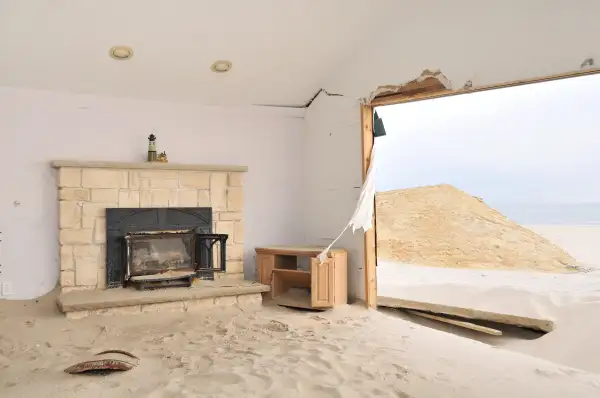It’s Hurricane Season: 5 Ways to Disaster-Proof Your Finances

The National Oceanic and Atmospheric Association has come out with its 2015 Atlantic hurricane forecast, and while the number of predicted named storms is below the historical average, it only takes one to wreak havoc on your home—and your finances. Though we can't stop the rain, we can provide you with some guidance to help you weather the storm.
Here’s how to safeguard your finances against a hurricane, flood, or any unexpected natural disaster:
1. Review your insurance coverage
Sure, it’s unglamorous to learn the nuances of your homeowners insurance policy—but diligence pays off. If you don’t understand your policy, a natural disaster could leave you with thousands of dollars in costs for damages you thought were covered.
For one thing, you should be aware that standard homeowners insurance won’t cover flood damage—and historically, most natural disasters in the U.S. have involved flooding, according to the Insurance Information Institute (III).
Homeowners in high-risk zones will be required by their mortgage lender to get a separate flood policy. But if you live near any body of water, you should think about getting coverage. Generally, people get basic policies through the National Flood Insurance Program, which covers up to $250,000 in dwelling and $100,000 in contents. If you're in a high-risk area, also consider "excess" flood insurance, sold by only a few insurers. (Be aware that it typically takes 30 days after purchase for any coverage to kick in.)
As for your vanilla homeowner's policy, the wording on how it covers your belongings could leave you holding a big bill. So take a look at whether it uses the phrase “actual cash value coverage” (which means it will cover the cost of your possessions minus depreciation) and more robust “replacement cost coverage” (which will cover the cost of replacing your possessions today). Replacement cost insurance costs 10% more on average, but offers more complete coverage for your belongings.
2. Make payments automatic.
In the stressful aftermath of a disaster, you don't want to be chasing paychecks that were mailed to your home or finding out that you forgot to pay a certain bill. So if you haven't already set your paychecks on direct deposit or your major bills to auto-pay online, do so now.
3. Safeguard important documents
In case you need to evacuate your home, you should have important personal and financial records collected in one place so that you can grab them on the run. “People who have to evacuate their houses often can’t get back in for several days,” says Robbie Berg, a hurricane specialist at the National Hurricane Center. “You need to make sure you have important information on hand.”
Key documents include your Social Security card, home deeds, medical insurance cards and stock and bond certificates. You may also want to save images of these documents in the cloud—password protected, of course—so that you can access them from anywhere. Or simply scan onto a flash drive, but keep the originals in a bank safe-deposit box, which is built to withstand with the elements.
4. Take an inventory of your stuff
If you end up needing to file an insurance claim for lost possessions after a disaster, having an inventory of the contents of your home—and particularly of expensive items like electronics, jewelry, and furniture—will make the process much smoother. “You don’t want to wait until a disaster hits to think about a home inventory,” says Loretta Worters, vice president of the III. “People are so devastated emotionally from something like a hurricane—going through and trying to figure out all the things you had is an added nightmare.”
Make your inventory as specific and comprehensive as possible—include the serial number on your television, for instance, and any receipts you have for high-ticket items. In addition to a written list, include photographs or video footage of your possessions. Install the free app from the III called Know Your Stuff, available for iPhone and Android devices, which helps you catalog your belongings.
5. Have backup cash
You should have an emergency fund saved up in a bank account—the general guideline is three to six months' living expenses—for exactly this type of situation. (To determine how much of a cushion you need, use this calculator.) If you're forced to rent a car after yours is damaged, for example, you'll be able to draw on this money instead of racking up charges on your credit cards.
Additionally, you’ll want to have some actual cash on hand, especially if you know a storm is coming. “When power gets cut off, you don’t have access to ATMs to get cash,” says Berg. Research what it might cost if you're evacuated for a few days in your area, including hotel and gas costs. Keep the money in small bills, since it might be hard to get change.
With any luck, all these tedious preparations will be unnecessary—but as those who've been through a super storm can attest, it's better to be financially safe than sorry.